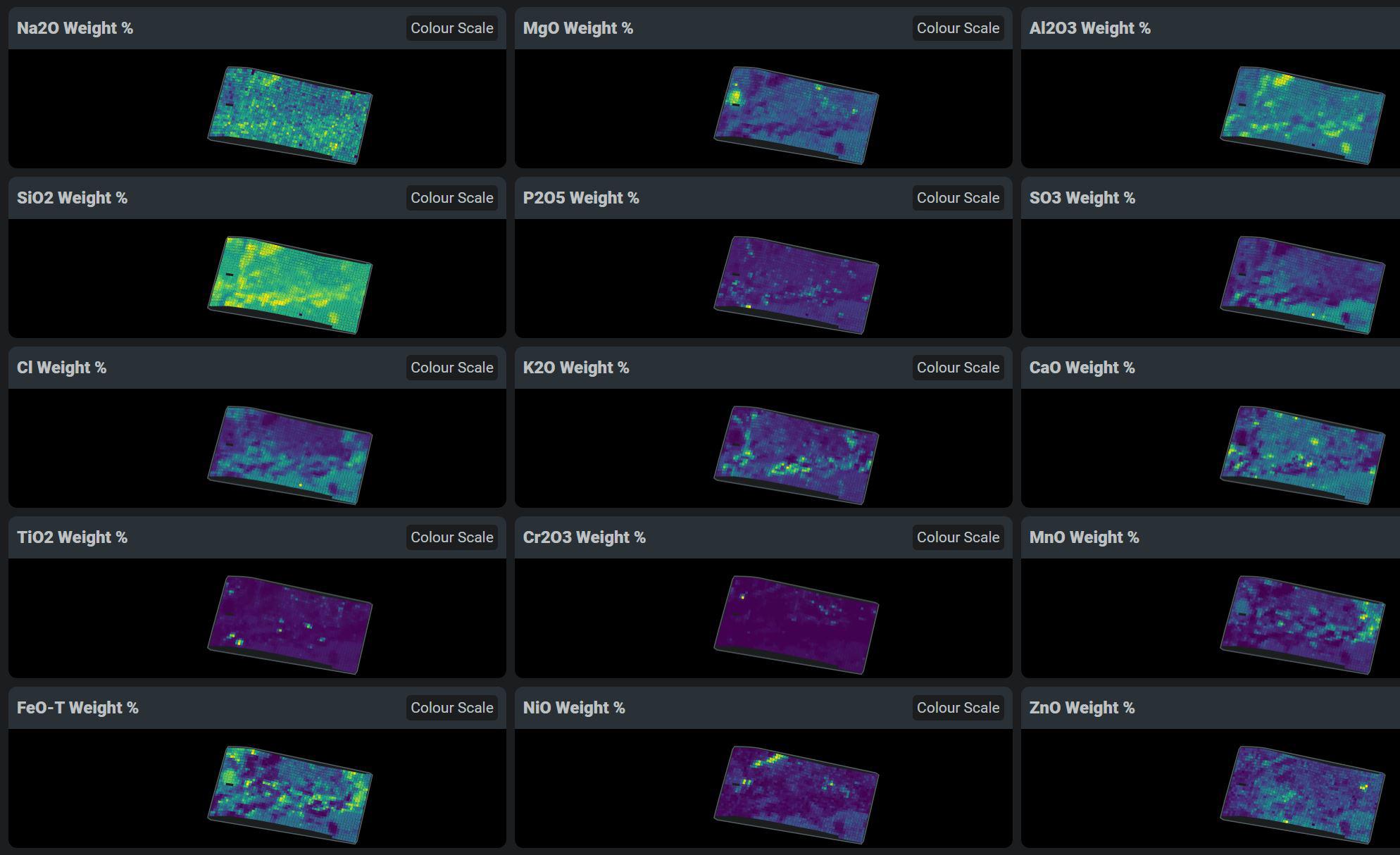
|
PIXL’s First Chemical Maps
- Click the image above for a larger view
- Full-Res JPEG (1988 x 1214) (191.6 kB)
- Full-Res TIFF (1988 x 1214) (1.9 MB)
Caption:
This data shows chemicals detected within a single rock on Mars by the Planetary Instrument for X-ray Lithochemistry (PIXL), one of the instruments on the end of the robotic arm aboard NASA's Perseverance Mars rover. PIXL allows scientists to study where specific chemicals can be found within an area as small as a postage stamp.
Background Info:
A key objective for Perseverance's mission on Mars is astrobiology , including the search for signs of ancient microbial life. The rover will characterize the planet's geology and past climate, pave the way for human exploration of the Red Planet, and be the first mission to collect and cache Martian rock and regolith (broken rock and dust).
Subsequent NASA missions, in cooperation with ESA (European Space Agency), would send spacecraft to Mars to collect these sealed samples from the surface and return them to Earth for in-depth analysis.
The Mars 2020 Perseverance mission is part of NASA's Moon to Mars exploration approach, which includes Artemis missions to the Moon that will help prepare for human exploration of the Red Planet.
JPL, which is managed for NASA by Caltech in Pasadena, California, built and manages operations of the Perseverance rover.
Cataloging Keywords:
| Name | Value | Additional Values |
|---|---|---|
| Target | Mars | |
| System | ||
| Target Type | Planet | |
| Mission | Mars 2020 | |
| Instrument Host | Perseverance | |
| Host Type | Rover | |
| Instrument | Planetary Instrument for X-ray Lithography (PIXL) | |
| Detector | ||
| Extra Keywords | Color, Dust, Moon | |
| Acquisition Date | ||
| Release Date | 2021-07-20 | |
| Date in Caption | ||
| Image Credit | NASA/JPL-Caltech | |
| Source | photojournal.jpl.nasa.gov/catalog/PIA24762 | |
| Identifier | PIA24762 | |
